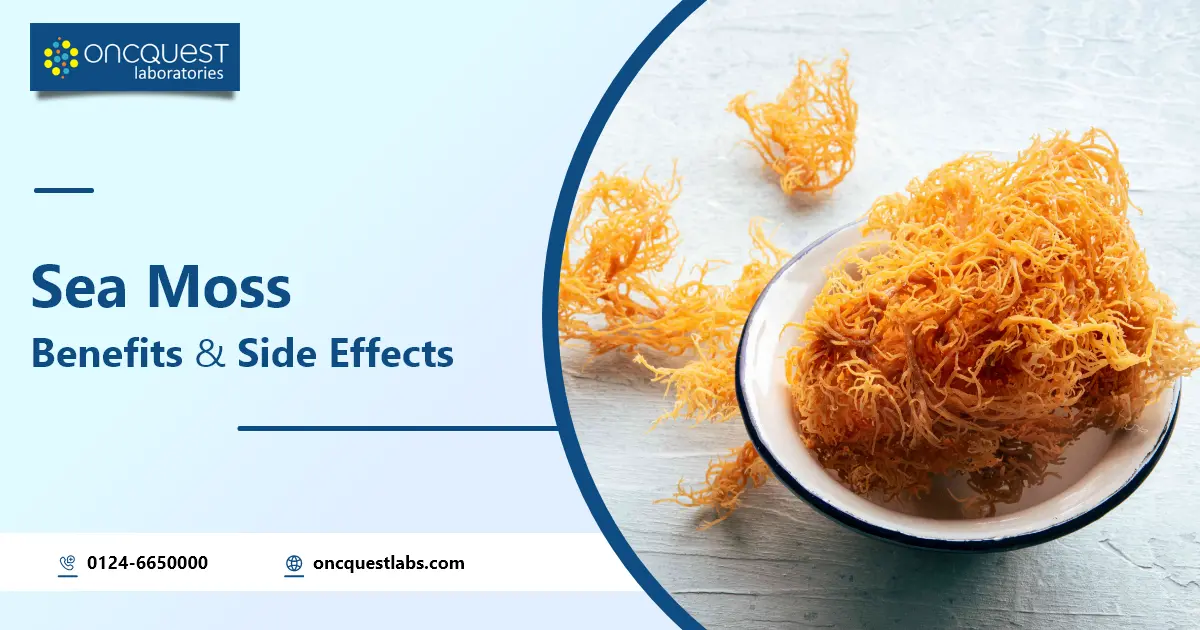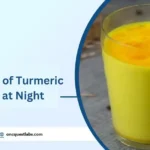Sea moss, also known as Irish moss or by its scientific name Chondrus crispus, is a type of red algae found primarily along the Atlantic coasts of Europe and North America. Historically, sea moss has been used for its nutritional and medicinal properties in various cultures, particularly in the Caribbean and Ireland. It has been praised for its rich content of vitamins, minerals, and other bioactive compounds that contribute to its potential health benefits. Recently, sea moss has gained popularity in the wellness and health communities, being touted for its immune-boosting, digestive, and thyroid-supporting properties. However, as with any supplement, it is crucial to understand both the potential benefits and side effects associated with its consumption.
Contents
What is Sea Moss?
Sea moss, scientifically known as Chondrus crispus, is a species of red algae that grows abundantly along the rocky shores of the Atlantic coastlines of Europe and North America. It is also commonly referred to as Irish moss or carrageen moss.Sea moss has a unique appearance, with thin, fan-like fronds that can vary in color from greenish-yellow to reddish-purple, depending on factors such as sunlight exposure and water quality. It thrives in cool, nutrient-rich waters and attaches itself to rocks and other substrates along the ocean floor.
Historically, sea moss has been valued for its nutritional and medicinal properties. It is rich in essential nutrients such as iodine, iron, potassium, magnesium, and vitamins A, E, and K. Additionally, sea moss contains carrageenan, a type of polysaccharide with various industrial and culinary applications due to its gelling and thickening properties.
Different Types of Sea Moss
Certainly! Here’s a table outlining different types of sea moss:
| Type of Sea Moss | Scientific Name | Description |
|---|---|---|
| Irish Moss | Chondrus crispus | Red algae species found along the Atlantic coastlines of Europe and North America. |
| Sea Moss | Gracilaria species | Various species of red algae, including Gracilaria vermiculophylla and Gracilaria chilensis. Commonly cultivated for commercial use. |
| Carrageen Moss | Chondrus species | Another term for Irish moss, derived from its use in traditional Irish recipes. |
| Bladderwrack | Fucus vesiculosus | Although not technically a sea moss, bladderwrack is a type of brown seaweed rich in iodine and other nutrients often found growing alongside sea moss. |
Each type of sea moss has its own unique characteristics and may vary in terms of color, texture, and nutrient composition. However, they are all valued for their potential health benefits and culinary uses.
Sea moss gel is a popular preparation of sea moss that involves blending dried sea moss with water to create a smooth, gel-like consistency. Here’s an outline of how to make sea moss gel:
Uses of Sea Moss
Sea moss, with its rich nutritional profile and versatile properties, has been used for various purposes across cultures for centuries. Here are some common uses of sea moss:
- Nutritional Supplement: Sea moss is consumed as a dietary supplement due to its high content of vitamins, minerals, and other essential nutrients. It can be added to smoothies, juices, and teas, or consumed as a gel to boost overall nutritional intake.
- Thickening Agent: The natural gelling properties of sea moss make it a popular thickening agent in cooking and food preparation. It can be used to thicken soups, stews, sauces, puddings, and desserts, serving as a healthier alternative to traditional thickeners like cornstarch or gelatin.
- Emulsifier: Sea moss contains carrageenan, a type of polysaccharide that acts as an emulsifier in food products. Carrageenan helps stabilize and improve the texture of various foods and beverages, including dairy products, plant-based milk, and processed foods.
Sea Moss Nutrition
Sure, here’s a table presenting the nutritional information of sea moss per 100 grams:
| Nutrient | Amount per 100g |
|---|---|
| Calories | 49 |
| Protein | 1.5g |
| Carbohydrates | 10.7g |
| Dietary Fiber | 0.9g |
| Fat | 0.5g |
| Vitamin A | 180 IU |
| Vitamin C | 4.8 mg |
| Vitamin E | 0.9 mg |
| Vitamin K | 0.7 µg |
| Folate | 182 µg |
| Calcium | 72 mg |
| Iron | 2.7 mg |
| Magnesium | 28 mg |
| Phosphorus | 26 mg |
| Potassium | 150 mg |
| Sodium | 89 mg |
| Zinc | 1 mg |
| Copper | 0.4 mg |
| Manganese | 0.3 mg |
| Selenium | 0.6 µg |
| Iodine | 25 µg |
| Omega-3 | 28 mg |
| Omega-6 | 57 mg |
This table offers a comprehensive overview of the nutritional content of sea moss, providing information on calories, macronutrients, vitamins, minerals, and essential fatty acids.
Nutrients per serving
One tablespoon (about 8 grams) of sea moss typically contains:
- Calories: 5-10
- Carbohydrates: 1-2 grams
- Fiber: 0-1 gram
- Protein: 0 grams
- Fat: 0 grams
- Iodine: 50-100 micrograms
- Calcium: 10-20 milligrams
- Magnesium: 5-10 milligrams
- Potassium: 40-80 milligrams
- Vitamin A: 25-50 international units
- Vitamin E: 0.1-0.2 milligrams
- Vitamin K: 10-20 micrograms
These values can vary slightly depending on factors such as the specific type of sea moss and how it’s processed.
Sea Moss Supplements
Sea moss supplements come in various forms, including capsules, powders, and gels. Here’s a brief overview of each:
Capsules: Sea moss capsules contain dried sea moss powder encapsulated in gelatin or vegetarian capsules. They provide a convenient way to consume sea moss without the taste or texture. Capsules typically offer a standardized dosage, making it easier to track your intake.Powders: Sea moss powder is made by drying and grinding the seaweed into a fine powder. It can be mixed into smoothies, juices, or other beverages, or used as an ingredient in recipes such as soups, sauces, and desserts. Powders offer versatility in how you incorporate sea moss into your diet and allow for precise dosing.Gels: Sea moss gel is made by blending soaked sea moss with water to create a thick, gel-like consistency. It can be consumed on its own or added to smoothies, drinks, or recipes as a thickening agent. Sea moss gel retains most of the nutrients present in the raw seaweed and is popular for its potential health benefits.
When choosing a sea moss supplement, it’s essential to look for products from reputable brands that undergo quality testing to ensure purity and potency. Additionally, consider your dietary preferences and lifestyle when selecting the form of sea moss that best suits your needs. As with any supplement, it’s advisable to follow the recommended dosage and consult with a healthcare professional if you have any concerns or medical conditions.
Sea Moss Benefits
1. Rich in Essential Nutrients
Sea moss is rich in essential nutrients, including iodine, calcium, potassium, and magnesium. It also provides a variety of vitamins such as A, E, F, and K, along with omega-3 fatty acids. This nutrient-dense profile supports overall health, contributing to energy levels, bone strength, and immune function. Incorporating sea moss into your diet can help ensure you get these vital nutrients.
2. Supports Digestive Health
Sea moss supports digestive health by acting as a prebiotic, feeding beneficial gut bacteria. Its mucilaginous texture soothes the digestive tract, helping to ease issues like indigestion and gastritis. The fiber content in sea moss aids in regular bowel movements, promoting overall gut health and reducing constipation. Its anti-inflammatory properties can also help alleviate irritation in the gastrointestinal system.
3. Boosts Immune Function
Sea moss boosts immune function with its high levels of antioxidants and anti-inflammatory properties, helping to protect the body against infections. It supports the immune system by providing essential nutrients such as vitamins A, C, and E, which are crucial for maintaining overall health and enhancing the body’s natural defenses. Regular consumption can help reduce the risk of illness and promote faster recovery.
4. Promotes Skin Health
Sea moss is rich in vitamins and minerals that nourish the skin. Its anti-inflammatory properties help reduce redness and irritation, making it beneficial for conditions like eczema and psoriasis. Additionally, sea moss hydrates the skin, promoting a healthy, radiant complexion. Its natural collagen content also supports skin elasticity, reducing the appearance of fine lines and wrinkles.
5. Supports Thyroid Health
Sea moss supports thyroid health due to its high iodine content, an essential mineral for thyroid function. The thyroid gland needs iodine to produce hormones that regulate metabolism, energy levels, and overall hormonal balance. Regular consumption of sea moss can help maintain optimal thyroid function, which is crucial for metabolic health. However, it should be consumed in moderation to avoid excessive iodine intake.
6. Aids in Weight Management
Sea moss aids in weight management by providing a rich source of fiber, which promotes a feeling of fullness and reduces overall calorie intake. Its nutrient density helps support metabolism and energy levels, making it easier to maintain a healthy diet and active lifestyle. Additionally, the prebiotic effects of sea moss support gut health, further contributing to effective weight management.
7. Improves Joint and Bone Health
Sea moss supports joint and bone health through its anti-inflammatory properties, which help reduce joint inflammation, making it beneficial for those with arthritis. Additionally, its rich content of calcium and magnesium strengthens bones, promoting overall bone health. These combined benefits make sea moss a valuable supplement for maintaining healthy joints and strong bones.
8. Enhances Energy Levels
Sea moss, rich in essential nutrients and antioxidants, has been shown to enhance energy levels naturally. Its potent blend of vitamins and minerals fuels the body, promoting vitality and vigor. By supporting healthy metabolism and providing sustained energy, sea moss keeps you feeling revitalized throughout the day. Incorporating this nutrient-packed seaweed into your diet can help you maintain peak performance and combat fatigue effectively.
9. Blood Sugar Management
Sea moss may help regulate blood sugar levels due to its high fiber content, which slows glucose absorption and prevents spikes. This benefit can be particularly useful for individuals with diabetes or those looking to manage their blood sugar. However, it’s important to consult a healthcare provider before using sea moss as a supplement to ensure it’s safe and appropriate for your health needs.
10. Energy and Recovery
Sea moss aids in muscle recovery and boosts energy levels due to its rich nutrient profile, including essential minerals and vitamins. It’s popular among athletes and those with active lifestyles, as it helps replenish nutrients lost during intense physical activity. Additionally, its anti-inflammatory properties support faster recovery, reducing muscle soreness and fatigue, thus enhancing overall performance and endurance.
While sea moss offers numerous potential benefits, it’s important to use it in moderation due to its high iodine content, which can disrupt thyroid function if consumed in excessive amounts. As with any supplement, it’s advisable to consult with a healthcare provider before adding sea moss to your diet, especially if you have underlying health conditions or are taking other medications.
Sea Moss Side Effects
While sea moss offers numerous potential health benefits, it’s essential to be aware of possible side effects and considerations:
Potential Allergic Reactions
- Potential allergic reactions to sea moss include itching, rash, swelling, or difficulty breathing. Individuals with seafood allergies should exercise caution when consuming sea moss, as they may be more susceptible to allergic responses. If allergic symptoms occur, discontinue use and seek medical attention promptly.
Iodine Sensitivity
- Sea moss contains high levels of iodine, which can cause adverse effects in individuals with iodine sensitivity or thyroid disorders. Excessive iodine intake from sea moss may lead to thyroid dysfunction, including hyperthyroidism or hypothyroidism.
Heavy Metal Contamination
- Heavy metal contamination is a concern with sea moss harvested from polluted waters. Metals like lead, mercury, and arsenic can accumulate in sea moss from industrial pollution. To mitigate this risk, it’s crucial to source sea moss from reputable suppliers that conduct thorough testing for heavy metal contamination.
Digestive Issues
- Excessive consumption of sea moss may lead to digestive issues such as bloating, gas, or diarrhea, particularly in sensitive individuals or those with underlying digestive conditions. It’s important to consume sea moss in moderation and listen to your body’s response. If you experience digestive discomfort, reduce your intake or discontinue use and consult with a healthcare professional.
Interaction with Medications
- Sea moss may interact with certain medications, affecting their absorption or effectiveness. It’s important to consult with a healthcare provider before consuming sea moss, especially if you are taking medications such as blood thinners or thyroid medications, to prevent potential interactions and adverse effects.
Quality and Sourcing Concerns
- Quality and sourcing concerns arise with sea moss due to variations in harvesting practices and potential contamination. To ensure safety and efficacy, it’s crucial to choose reputable suppliers that adhere to strict quality standards, provide transparent sourcing information, and conduct thorough testing for purity and contaminants.
Sea Moss Benefits for Men
Improved Sexual Health
- Sea moss may contribute to improved sexual health in men due to its nutrient content and potential hormonal balancing effects. Some studies suggest that sea moss may support reproductive health and libido, enhancing sexual function and performance. However, further research is needed to fully understand its effects in this regard.
Enhanced Athletic Performance
- Sea moss may enhance athletic performance in men due to its rich nutrient profile, including minerals like magnesium and potassium. These nutrients support muscle function, hydration, and electrolyte balance, aiding in energy production, muscle recovery, and overall athletic endurance and performance.
Prostate Health
- While research specifically on sea moss and prostate health is limited, its rich nutrient content, including zinc and vitamins A and E, may indirectly support prostate health. These nutrients are known to play roles in immune function and antioxidant protection, potentially benefiting prostate health in men.
Cardiovascular Support
- Sea moss provides cardiovascular support for men by containing potassium and magnesium, which help regulate blood pressure and maintain heart health. Its fiber content also contributes to healthy cholesterol levels, reducing the risk of heart disease and supporting overall cardiovascular function.
Joint and Bone Health
- Sea moss supports joint and bone health in men with its mucilaginous properties and mineral content. It helps lubricate joints, reduce inflammation, and strengthen bones, reducing the risk of age-related conditions like arthritis and osteoporosis, and promoting overall joint and bone wellness.
Sea Moss Benefits for Women
Sea moss offers several potential benefits for men’s health:
Hormonal Balance
- Sea moss may aid in hormonal balance for women by helping regulate estrogen levels. Its nutrient-rich composition, including iodine and antioxidants, supports thyroid function and hormone production, potentially alleviating symptoms of hormonal imbalance such as PMS or menopausal symptoms.
Skin Health
- Sea moss promotes skin health in women with its rich blend of vitamins, minerals, and antioxidants. It moisturizes the skin, reduces inflammation, and supports collagen production, leading to a youthful complexion. Sea moss may also alleviate skin conditions like acne, eczema, or psoriasis, promoting overall skin wellness.
Hair Growth and Health
- Sea moss promotes hair growth and health in women with its nutrient-rich composition. It nourishes the scalp and hair follicles, stimulating hair growth, strengthening strands, and reducing hair loss or breakage. Sea moss also supports overall hair health, leaving hair looking lustrous, vibrant, and resilient.
Digestive Support
- Sea moss provides digestive support for women by promoting digestive regularity and gut health with its high fiber content. It alleviates bloating, constipation, and supports a healthy gut microbiome, improving overall digestive wellness and nutrient absorption for optimal health.
Immune System Boost
- Sea moss boosts the immune system in women by providing essential vitamins, minerals, and antioxidants. These nutrients support immune function, helping the body fight off infections and illnesses more effectively, and promoting overall health and resilience against pathogens and environmental stressors.
Bone Health
- Sea moss supports bone health in women with its mineral-rich composition, including calcium and magnesium. These minerals strengthen bones, reducing the risk of osteoporosis and fractures, particularly important during menopause when bone density tends to decrease, promoting overall bone health and vitality.
Energy and Vitality
- Sea moss boosts energy and vitality in women with its rich nutrient profile, including iron and B vitamins, essential for energy metabolism and combating fatigue. Regular consumption can increase stamina, improve physical and mental performance, and promote overall vitality and well-being.
How to Prepare Sea Moss
Preparing sea moss involves several steps:
- Cleaning: Rinse sea moss thoroughly in cold water to remove any debris or salt.
- Soaking: Place the cleaned sea moss in a bowl and cover it with filtered water. Let it soak for 4-12 hours or until it expands and becomes soft.
- Rinsing: After soaking, drain the sea moss and rinse it again to remove any remaining impurities.
- Blending: Transfer the soaked sea moss to a blender and add fresh water. Blend until smooth and gel-like in consistency.
- Storing: Store the sea moss gel in an airtight container in the refrigerator for up to two weeks or freeze it for longer shelf life.
- Usage: Use the sea moss gel as a thickening agent in smoothies, soups, sauces, or desserts, or apply it topically in skincare or haircare routines.
By following these steps, you can prepare sea moss gel for consumption or various other uses, enjoying its nutritional benefits and versatile applications.
Conclusion
sea moss offers a plethora of nutritional benefits that can support overall health and well-being. Its rich composition of vitamins, minerals, antioxidants, and essential fatty acids makes it a valuable addition to any diet. Sea moss is known to boost immune function, aid in digestion, promote healthy skin and hair, and support bone and joint health. However, it’s essential to be mindful of potential side effects, such as allergic reactions, iodine overdose, and heavy metal contamination. By incorporating sea moss into a balanced diet and consulting with healthcare professionals when necessary, individuals can harness its benefits while minimizing risks, ultimately contributing to a healthier lifestyle.





